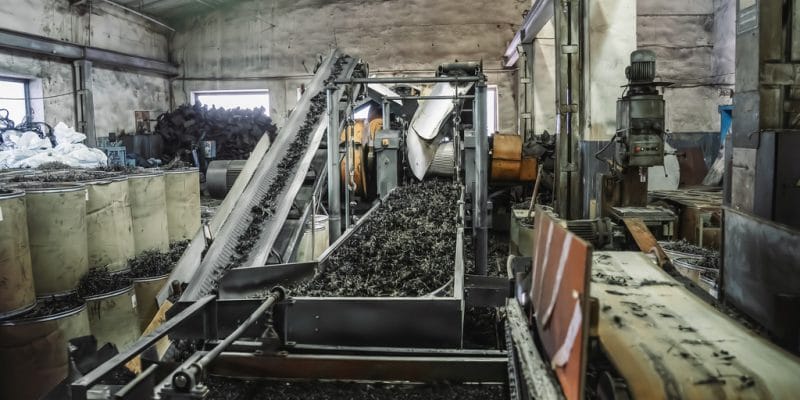Recyclers Ghana Constrained, Gravita India's lead production and export subsidiary, will recycle more than 6,000 tonnes of waste rubber per year in Ghana. This will be achieved through a recently commissioned plant.
In Ghana, a new company is focusing on waste recycling to achieve the Sustainable Development Goals (SDGs). It is Recyclers Ghana Constrained, which specialises in waste recycling. The Gravita India subsidiary recently opened a new plant. According to Gravita India officials, the new facility will recycle over 6,000 tonnes of waste rubber per year. The waste is produced at the Recyclers Ghana Constrained facility.
An investment of about $49,000
The products recycled in the new plant are reused by the Ghanaian company, reducing its production costs. This also reduces its environmental impact. In addition to the risk of cancer, the fumes emitted during the production, vulcanisation and processing of rubber are irritating to the respiratory tract and can cause occupational asthma.
The pyrolysis oil generated throughout the rubber recycling process at the plant will be used by the company for home absorption as a vitality source of choice for recycling lead and aluminium waste. The implementation of the Recyclers Ghana Constrained recycling project required an investment of INR 3.80 million (about US$49,000) by Gravita India. The lead producer and exporter plans to set up similar plants at its other sites around the world, particularly in Africa.
Read also –
Recyclers Ghana Constrained is making its commitment concrete, less than a month after Engen Ghana decided to recycle plastic waste collected from its 42 service stations into reusable plastic granules. The oil company has chosen Coliba Recycling Services to support it in this process. The recycled material will be sold to the automotive, construction and textile industries, etc.
Inès Magoum






